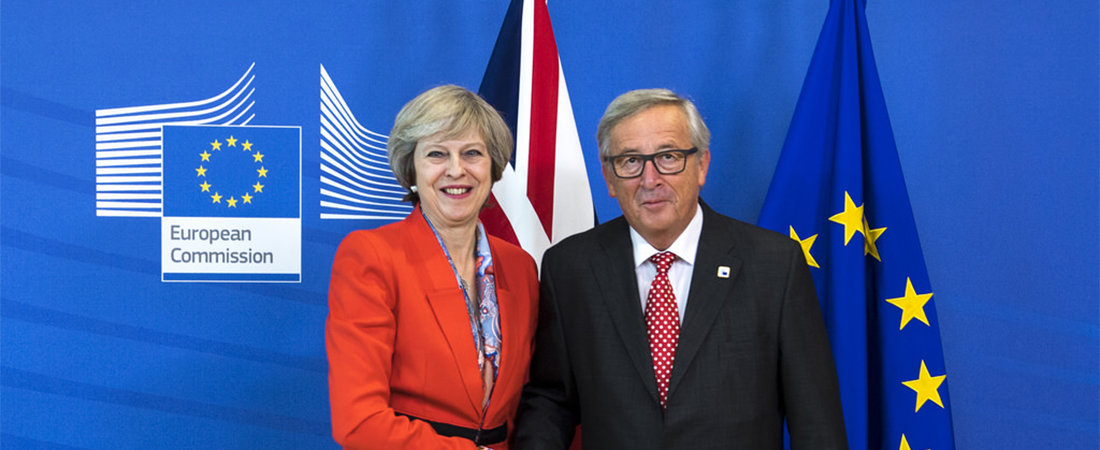The defining moment of Brexit in 2017
“What they are doing jeopardises the work we must do to prepare for Brexit at home. And it weakens the Government’s negotiating position in Europe.”
Those words could easily have been uttered by Theresa May in response to her government’s recent defeat on the EU Withdrawal Bill, her first on Brexit legislation.
Instead they came back in April, as she announced a general election, on the steps of Downing Street.
Even with the triggering of Article 50 in March and December’s declaration of ‘sufficient progress’ in the negotiations, the Tories’ election debacle in June stands out as the defining moment of Brexit in 2017.
Left unable to muster the numbers to pass key domestic legislation and humbled by just 11 Tory rebels, it has also shackled the PM to the DUP, a party that received fewer than 300,000 votes six months ago, for the remainder of this parliament.
The DUP, infamous negotiators accustomed to Stormont standoffs, almost derailed talks in Brussels earlier this month when plans to ensure ‘regulatory alignment’ between Northern Ireland and the Republic were negotiated behind their backs and then leaked to Irish broadcasters.
Parliamentary skirmishes at home and negotiating with one hand tied behind her back abroad, Theresa May must now be wondering who in fact has weakened the Government’s position in Europe.
What can we expect in 2018?
To the delight of European negotiators and the frustration of the Brits, unity between European nations and EU institutions has held firm this year, despite ongoing attempts by the UK to “divide and rule”. In 2018, expect to see that end.
It’s easy to agree that Britain should pay more money – the northern European countries don’t want to see their contributions rise, just as the southern and eastern nations don’t want to see their receipts fall.
It’s also easy to agree that the rights of each other’s citizens in the UK should be protected. Britain is, after all, one of the top destinations for many EU countries’ migrants.
And the Irish border can has been kicked down the proverbial road.
The cracks will start to emerge when the interests of the Eurozone are pitted against non-members, to whom Britain used to offer a sturdy bulwark.
Germany and the Scandinavian countries want to keep the purse strings tight while their southern neighbours, marshalled by an assertive President Macron, want them loosened.
Belgium and the Netherlands are massively exposed to a rupture in trade in a way that Slovakia and Bulgaria are not.
The former Soviet bloc will prioritise British defence contributions in the face of Russian aggression; Club Med will favour tourism and the Open Skies agreement.
Up to this point the EU has marvelled at its newfound unity, but its agreement is on issues you’d expect. Now their interests are in competition with each other. While we shouldn’t assume this is in Britain’s favour, either way Brexit suddenly has 28 players rather than two.

